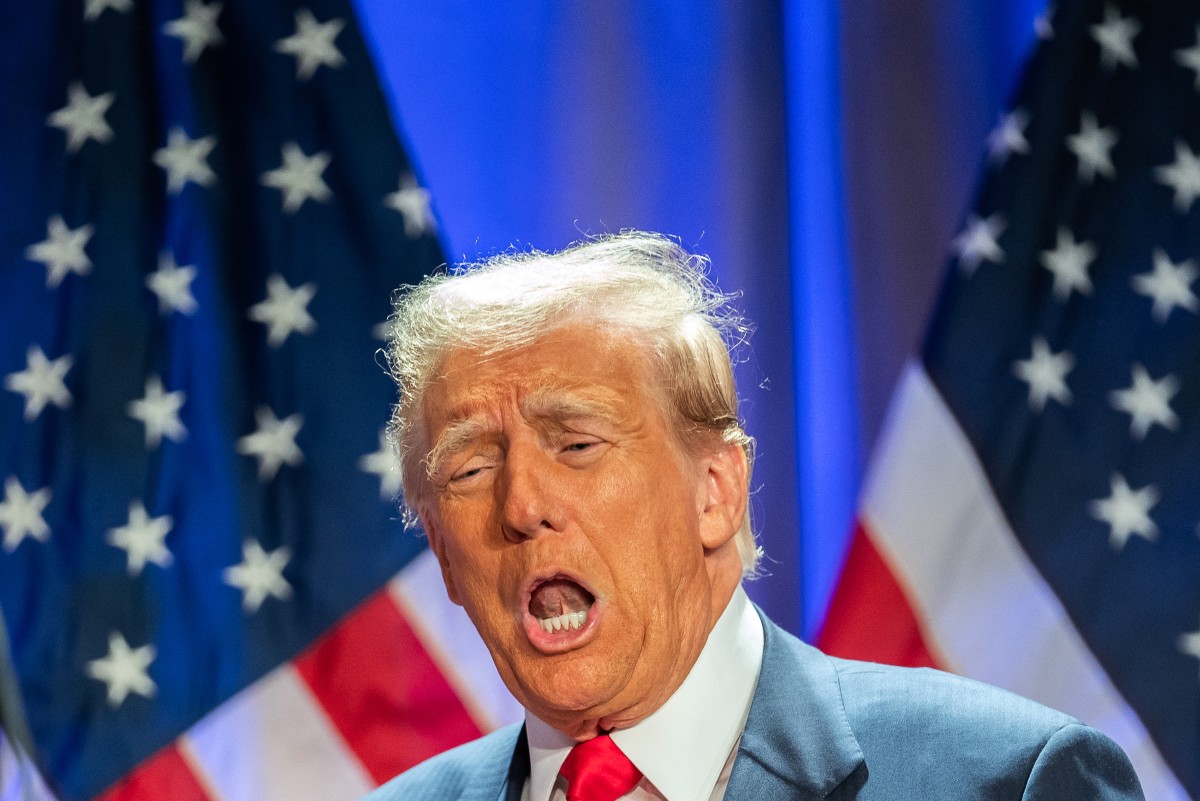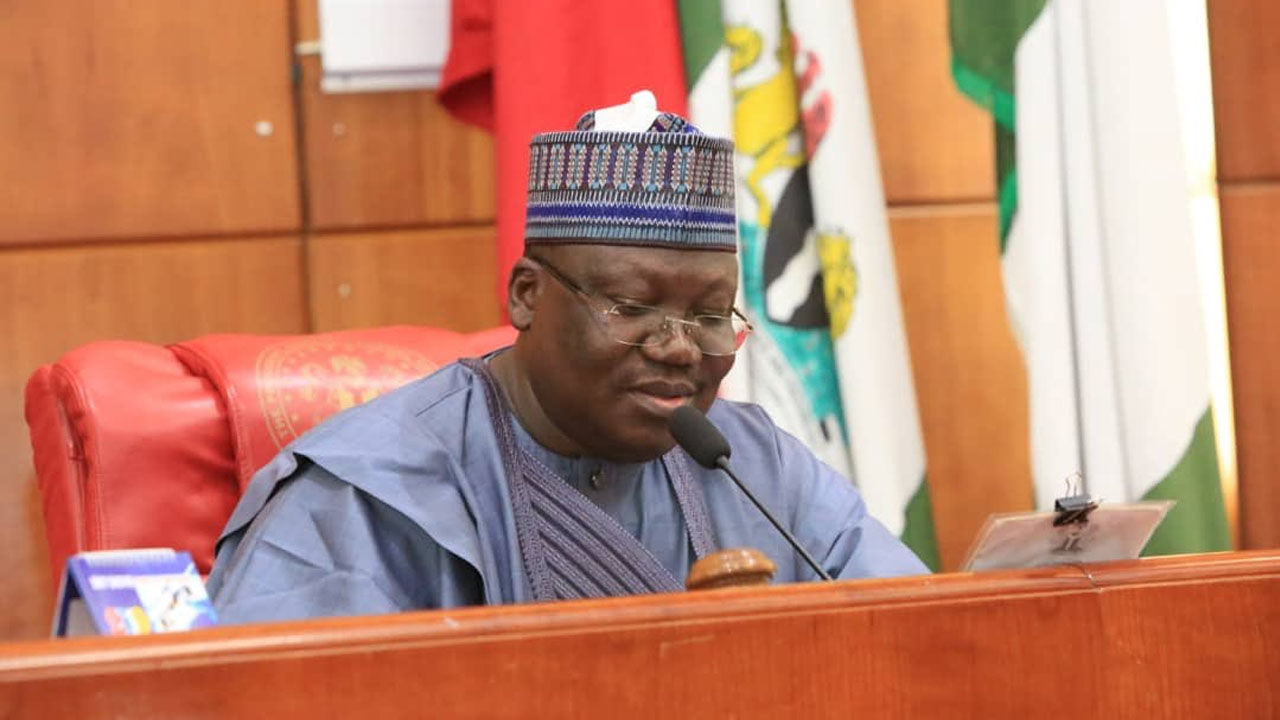
• Analysts weigh options amid looming shift in relations, alignments
• Tariffs could disrupt global trade, supply chains, investments, IMF warns
• AGOA trade benefits risk non-renewal, says Yusuf
• Rising U.S. inflation, interest rates may affect global capital flow
• Identify, return Nigeria’s stolen assets, SERAP tasks new U.S. administration
As Donald Trump begins his second term as U.S. president today, Africa is at a critical crossroads, facing the possibility of strained economic ties with the United States. With Trump’s “America First” doctrine likely to dominate his agenda again, the continent must prepare for potential shocks to trade policies, currency stability, and foreign investments.
Analysts like the Institute for Security Studies (ISS) have urged the continent to prepare for surprises, stressing the need to recalibrate strategies anticipating shifts in United States foreign policy.
The broader implications of Trump’s return to the presidency remain unclear. With the African Growth and Opportunity Act (AGOA) under threat, supply chains at risk, and African currencies vulnerable to devaluation, policymakers across the continent must brace for substantial economic challenges in the coming years.
The ISS noted that during Trump’s first term, his “America First” philosophy prioritised domestic interests over international partnerships, raising concerns about the future of United States-Africa relations. The institute also stressed the importance of African nations diversifying their trade partnerships and using this transition period to negotiate better bilateral deals.
The Director of the Centre for the Promotion of Private Enterprise (CPPE), Muda Yusuf, warned that AGOA may not survive Trump’s highly transactional approach to governance.
Yusuf further noted that these policies could strengthen the American dollar, creating significant challenges for African economies reliant on imports. A stronger dollar would make imports more expensive, particularly for Nigeria, where the naira will likely face further depreciation due to capital flow reversals as investors seek higher United States interest rates.
He added that Trump’s hardline stance on immigration could reduce the availability of cheap labour in the United States, driving up production costs. For Africa, this could translate to higher prices for imported goods.
Yusuf suggested that due to these issues, nations such as China and members of the European Union may seize the opportunity to deepen their partnerships with African countries, potentially offering more favourable trade terms.
Despite these challenges, some analysts believe Africa could benefit from the shifting dynamics. A diminished focus on the continent by the United States could enable China and the EU to strengthen their economic ties with Africa, filling the void left by reduced American trade engagement.
For its part, the International Monetary Fund (IMF) expressed alarm, stating that Trump’s tariff-driven trade policies could heighten global trade tensions and disrupt supply chains. The IMF predicts that increased import taxes in the United States would raise the cost of selling goods to the world’s largest economy. The IMF also cautioned that such policies could lead to an inflationary boom followed by a bust, potentially undermining the reputation of United States Treasury bonds as a secure investment. Trump has already threatened steep tariffs, including 100 per cent duties on the BRICS bloc, if they pursue plans to introduce a rival currency to the dollar. He also intends to raise tariffs on imports from countries such as China, Canada, and Mexico from his first day in office.
IMF Chief Economist Pierre-Olivier Gourinchas, basing his assessment on current policies, remarked that a period of stability could “draw to a close the global disruptions of recent years, including the pandemic and Russia’s invasion of Ukraine, which triggered the largest inflation surge in four decades.”
However, the IMF explicitly warned Trump and his economic advisers against making dramatic policy shifts that could jeopardise the stability of the U.S. and global economies.
While the IMF’s analysis shows that the U.S. will maintain its position as the fastest-growing G7 economy, projecting a 2.7 per cent growth rate for this year and 2.1 per cent for the next, this outlook is based on policies implemented by the Biden administration.
A lecturer in the Department of History, University of Lagos (UNILAG), Prof. David Aworawo, argued that if Donald Trump implements his threat to impose tariffs, it will disrupt the international economic system and global trade, causing negative consequences for several countries.
He noted that such disruptions would harm the global economy. However, he said that the interwoven nature of the global economy, characterised by intensified international trade linkages, would limit how far Trump could go in imposing tariffs. Aworawo explained that these interdependencies would compel the United States president to tread cautiously once in office.
Reflecting on Trump’s previous administration, Aworawo pointed out that the “America First” policy is expected to remain central to his governance. “This means aid and other forms of support to Africa are unlikely to be as extensive as they were under other administrations because the continent would not be a major focus,” he said.
He further stated that Trump will likely take proactive steps to counter China’s growing influence in Africa, especially regarding the continent’s resources. “One expects the focus would be on trade that mutually benefits Africa and the United States while also countering Chinese influence. Additionally, we anticipate a decline in the number of Nigerians moving to the U.S. compared to previous tenures, which would result in lower diaspora remittances,” he said. Aworawo also predicted that Trump would continue supporting Nigeria’s counterterrorism efforts.
Similarly, Emmanuel Onwubiko, Founder of the Human Rights Writers Association of Nigeria, described Trump’s return as an opportunity for African countries to adopt proactive strategies in shaping their political and economic relations with the United States. He called for developing resilient measures to navigate shifting American policies rather than reacting to them.
Onwubiko stressed the importance of Nigeria leveraging the technical military assistance it has received from the United States in its fight against terrorism. He also highlighted the need for Nigeria to adhere to international human rights obligations, including Chapter 4 of the Nigerian Constitution and global humanitarian treaties.
“As a Nigerian, I expect the incoming American president to uphold the United States’ global role as a promoter of human rights and democracy. While Trump’s presidency emphasises ‘America First,’ the United States’ status as a world power would diminish if it abandons its commitment to global democracy and human rights,” he said.
A lawyer, Akeem Aponmade, however, cautioned against judging Trump’s second-term policies solely based on his campaign rhetoric, including his attacks on Haitian and African immigrants. He argued that Africa holds significant potential for socio-economic partnerships with the United States and expressed optimism about collaborations on issues of mutual interest.
Aponmade highlighted the longstanding diplomatic ties between Nigeria and the United States, expressing confidence that their governments would work to maintain relations and minimise conflicts. He also noted similarities between President Bola Tinubu of Nigeria and President Trump, including their shared boldness in decision-making, which he believed could strengthen bilateral relations.
He further stressed the importance of United States-Nigeria trade and investment ties, citing Chevron’s recent oil and gas deal under Tinubu’s administration as a positive example. Aponmade expressed confidence that the fraternity between the two nations would be sustained during Trump’s tenure in a way that benefits both countries.
A researcher, Nnamdi Ibekwe, suggested that although many commentators disagree with Trump’s campaign statements and promises, particularly regarding Africa, the continent would gain greater respect if it addresses its internal challenges.
He stated that Trump’s new tenure should serve as a wake-up call for Africa to put its house in order. He noted that while Trump can implement his campaign promises, this would depend on whether the institutional powers within the United States system allow him to do so, as sovereignty is a central principle in international relations and diplomacy.
“Why should Africa be poor? Why should its leaders remain uninterested in addressing the causes of the ‘japa’ syndrome and finding ways to resolve it? The responsibility lies with African leaders to prioritise Africa and its citizens by addressing the factors that make the continent appear wretched. They should draw lessons from Trump’s comments and use them to develop a strategic plan to reposition Africa positively on the global stage,” he said.
Commenting on Trump’s new tenure, Ibekwe acknowledged that the deportation of undocumented individuals, though it may affect Africans, would benefit the United States by enhancing security. He noted that security is best maintained when everyone is properly documented, as illegal immigrants can pose significant risks.
“Africa can learn from this by undertaking proper census delineation to facilitate planning and ensure the accurate documentation of residents for security purposes,” he added.
MEANWHILE, the Socio-Economic Rights and Accountability Project (SERAP) urged U.S. President-elect Donald Trump and his incoming administration to identify America-based proceeds of corruption linked to former and current Nigerian public officials and their associates. It also called for the full recovery and transparent return of such stolen assets to Nigeria.
The organisation stressed that returned assets must meet strict transparency and accountability standards to ensure the funds benefit the Nigerian people.
SERAP appealed to Trump to direct the U.S. Department of Justice to initiate civil asset forfeiture proceedings against proceeds of corruption traced to Nigerian public officials and their associates. The group said this would fulfil several non-controversial commitments made by the United States to assist Nigeria in asset recovery efforts.
Also, SERAP urged Trump to identify and publish the names of Nigerian public officials suspected of corruption and depositing its proceeds in U.S. banks. The group requested that existing U.S. presidential proclamations be applied to temporarily ban such individuals from entering the United States.
The appeal followed the recent return of $52.88 million in forfeited corruption proceeds linked to former Petroleum Resources Minister Diezani Alison-Madueke.
In a letter signed by SERAP’s deputy director, Kolawole Oluwadare, the organisation noted that Alison-Madueke’s looted assets represent only a tiny fraction of the estimated $500 billion reportedly stolen from Nigeria and located in the United States or under U.S. jurisdiction.
“Our requests are in the public interest and aligned with the UN Convention against Corruption, to which both the U.S. and Nigeria are signatories,” the letter stated.
SERAP expressed concern that proceeds of corruption from Nigeria continue to be deposited in U.S. banks and other locations under American jurisdiction. The organisation emphasised the need for the U.S. government to address legal loopholes that enable Nigerian officials to deposit and conceal their ill-gotten assets.
“Returning proceeds of corruption to Nigeria is a developmental imperative. By doing so, the U.S. would contribute to efforts to reduce poverty in Nigeria and achieve the Sustainable Development Goals,” SERAP said.
The organisation highlighted America’s obligation under the UN Convention against Corruption to trace, freeze, seize, and return proceeds of corruption to Nigeria.
SERAP also argued that imposing a temporary travel ban on Nigerian officials suspected of corruption would not violate due process or the presumption of innocence, provided the reasons for such sanctions are communicated to those affected.






